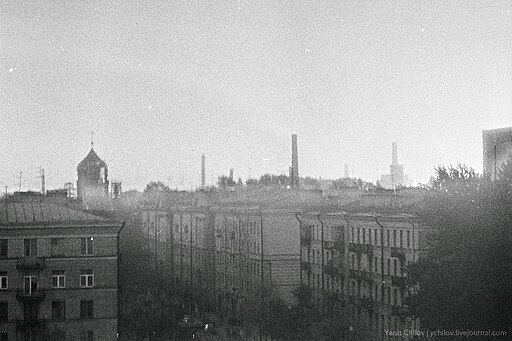Notes from Underground
My introduction to Fyodor Dostoyevsky was through (surprise!) Crime and Punishment. Unable to swallow its psychopathic elements, I gave up just when the story was picking up and could not, in fact, bring myself to finish it. Fast-forward to summer/fall 2011 - I was taking History of Russia and the USSR, picked up The Idiot because it seemed timely, and found it almost as equally disturbing but vastly more fascinating than C&P. Now, after several people have (independently of each other) inadvertently recommended him to me this year, I've returned to Dostoyevsky via Notes from Underground.
"I am a sick man.... I am a spiteful man. I am an unattractive man. I believe my liver is diseased." The anonymous narrator's self-deprecatory sense of humor is strangely charming, at least initially. A retired government official, he lives now in seclusion in the "Underground" (or underworld) of St. Petersburg, talking to himself about his past youth and professional life. Part I of the book focuses on his philosophical perspective, which, according to Wikipedia, is considered existentialist. Part II expounds upon this with specific scenarios from his past which still haunt him.
I liked the book. For the first two-thirds or so, I felt I could often empathize with the narrator. He seems to have some form of social anxiety disorder, preventing him from forming close relationships, be they platonic or romantic. His antagonists are, alternatively, the people around him and himself, and he is never quite sure which is the true cause of his failure to fit in. This anxiety is much more intense than anything I have personally experienced, but anyone who has felt isolated in conventional society will find something here to relate to.
But though he hates his lack of social skills, the narrator also loathes the "paltry, UNLITERARY, commonplace" reality of shallow society. Trying to be like other people, he adopts a dissipated lifestyle, plagued all the time by the knowledge that he is not, in his heart, as low as that. He wants desperately to be like other people, but more than that, he wants to be himself.
The last 1/3 of the book was, to me, deeply depressing, just like the last part of The Idiot. The general themes of Notes are more significant than the story, so I cannot say the last subplot ruined the book, but it was disappointing enough to deduct some stars. On Goodreads I gave this a 3; here I can give it 3.5 out of 5. I recommend Notes in spite of the ending, and - being a short, quick read - it would be a great introduction to Dostoyevsky's writing.
***
A note on the translation: this was the one by Constance Garnett (am fairly sure I also read her translation of Fathers and Sons). From what I read online, it seems her translations tend to favor readability over accuracy. I certainly found Notes readable and happily devoid of 21st-century vocabulary. The downside is the Britishness of Garnett's word and phrase choices - fun to read, but a bit too British for Russian literature. I plan to read multiple translations of Dostoyevsky, as I am doing for Eugene Onegin (of course, my goal is to read the original Russian, someday!).
Some favorite quotes:
- I will observe, in parenthesis, that Heine says that a true autobiography is almost an impossibility, and that man is bound to lie about himself.
- Of course I cannot break through the wall by battering my head against it if I really have not the strength to knock it down, but I am not going to be reconciled to it simply because it is a stone wall and I have not the strength.
- May it not be that he loves chaos and destruction (there can be no disputing that he does sometimes love it) because he is instinctively afraid of attaining his object and completing the edifice he is constructing? Who knows, perhaps he only loves that edifice from a distance, and is by no means in love with it at close quarters; perhaps he only loves building it and does not want to live in it . . .
- "My face may be ugly," I thought, "but let it be lofty, expressive, and, above all, extremely intelligent."
- At one time I was unwilling to speak to anyone, while at other times I would not only talk, but go to the length of contemplating making friends with them.
- He was the only permanent acquaintance I have had in my life, and I wonder at the fact myself now. But I only went to see him when that phase came over me, and when my dreams had reached such a point of bliss that it became essential at once to embrace my fellows and all mankind; and for that purpose I needed, at least, one human being, actually existing.
- ...man everywhere and at all times, whoever he may be, has preferred to act as he chose and not in the least as his reason and advantage dictated. . . . What man wants is simply independent choice, whatever that independence may cost and wherever it may lead.




Comments